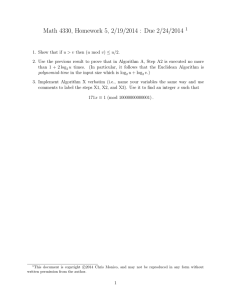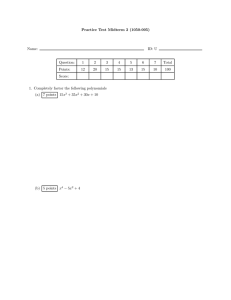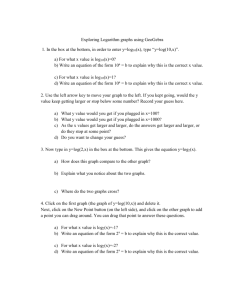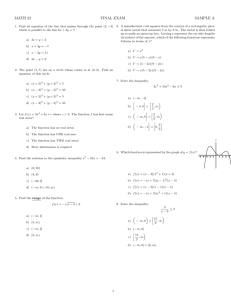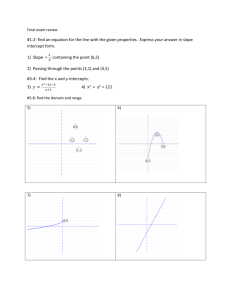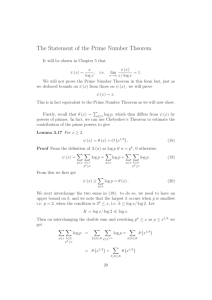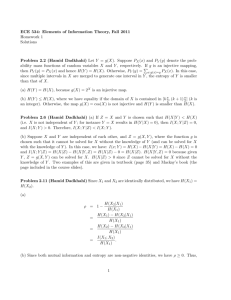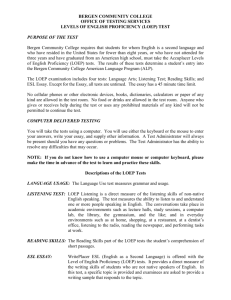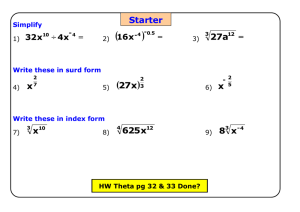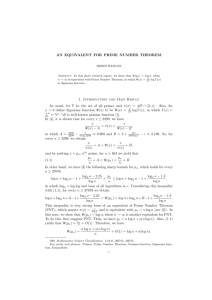ELEN E6909 Problem Set #8 Solutions MODERN DIGITAL MODULATION TECHNIQUES May 6, 2008
advertisement
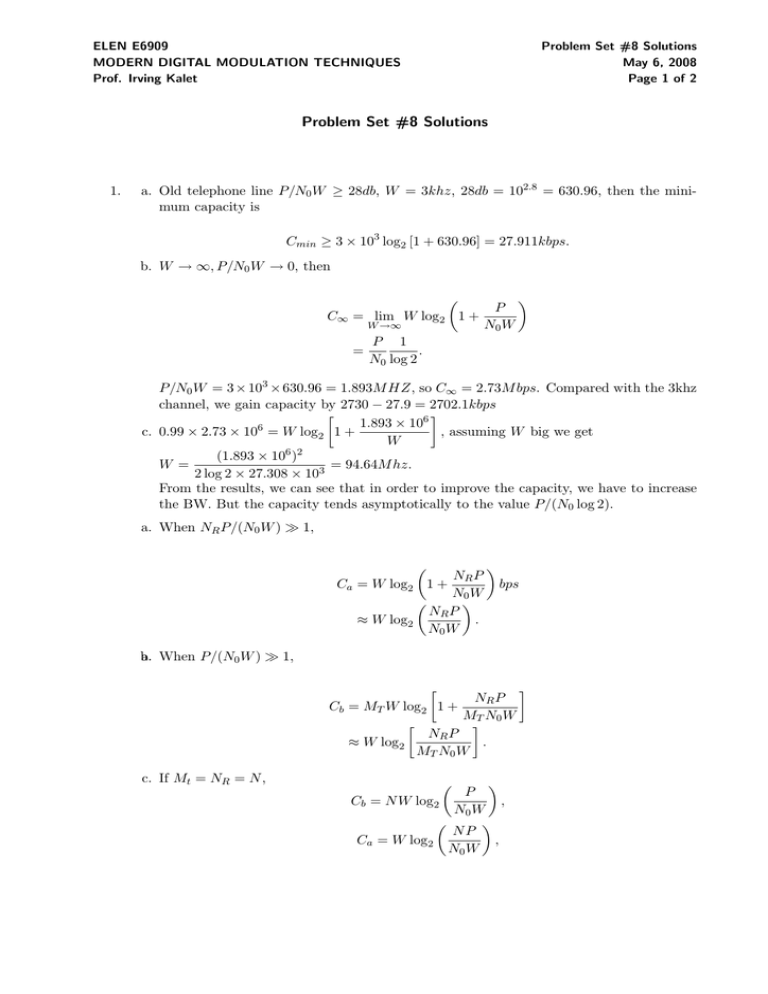
ELEN E6909 MODERN DIGITAL MODULATION TECHNIQUES Prof. Irving Kalet Problem Set #8 Solutions May 6, 2008 Page 1 of 2 Problem Set #8 Solutions 1. a. Old telephone line P/N0 W ≥ 28db, W = 3khz, 28db = 102.8 = 630.96, then the minimum capacity is Cmin ≥ 3 × 103 log2 [1 + 630.96] = 27.911kbps. b. W → ∞, P/N0 W → 0, then µ C∞ = lim W log2 1 + W →∞ = P N0 W ¶ P 1 . N0 log 2 P/N0 W = 3 × 103 × 630.96 = 1.893M HZ, so C∞ = 2.73M bps. Compared with the 3khz channel, we gain capacity by 2730 − 27.9 = 2702.1kbps ¸ · 1.893 × 106 6 , assuming W big we get c. 0.99 × 2.73 × 10 = W log2 1 + W (1.893 × 106 )2 W = = 94.64M hz. 2 log 2 × 27.308 × 103 From the results, we can see that in order to improve the capacity, we have to increase the BW. But the capacity tends asymptotically to the value P/(N0 log 2). a. When NR P/(N0 W ) À 1, µ ¶ NR P Ca = W log2 1 + bps N0 W µ ¶ NR P ≈ W log2 . N0 W b. a. When P/(N0 W ) À 1, · NR P Cb = MT W log2 1 + MT N0 W · ¸ NR P ≈ W log2 . MT N0 W c. If Mt = NR = N , µ ¶ P Cb = N W log2 , N0 W ¶ µ NP , Ca = W log2 N0 W ¸ 2 ELEN E6909, Problem Set #8 Solutions Cb is clearly linear in N , Ca is a logarithmic function of N . When P/(N0 W ) À 1 constant, the linear function grows much faster than the log function. In fact, we have lim Cb /Ca = +∞,i.e. Cb À Ca when N → ∞. N →∞ d. When NR P/N0 W ¿ 1, µ ¶ NR P Ca = W log2 1 + N0 W ¶ µ W NR P = log 1 + log 2 N0 W NR P ' . N0 log 2 When P/N0 W ¿ 1, · Cb = MT W log 2 1 + ' NR P MT N0 W ¸ NR P . log 2N0 At least in first order approximation Ca = Cb . For P/N0 W ¿ 1, MIMO does not affect any improvement over SIMO.
